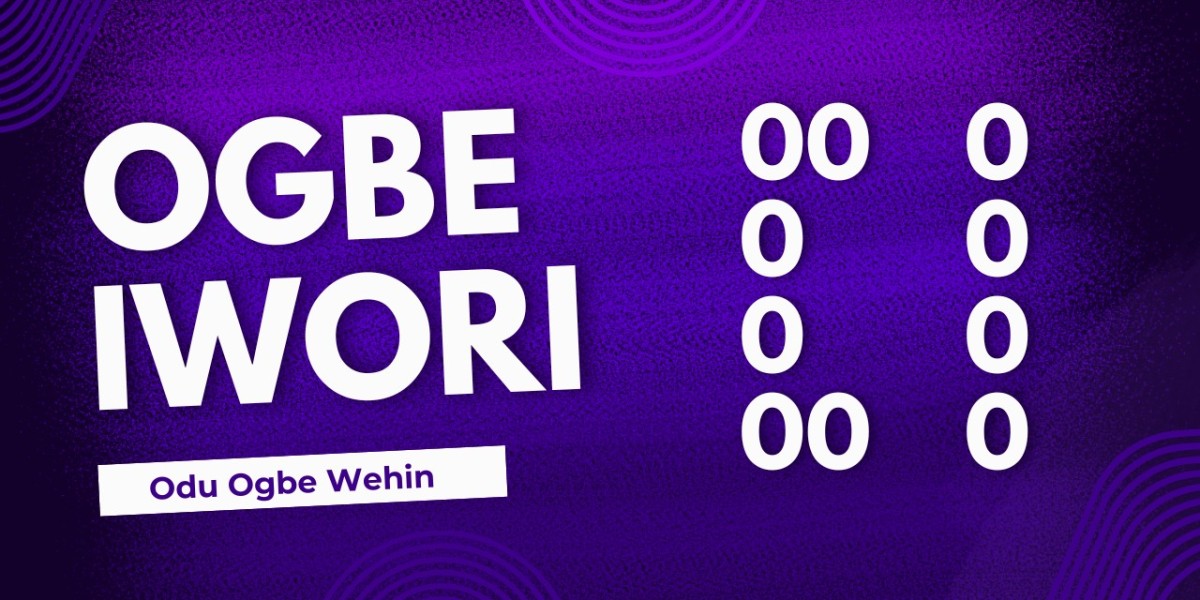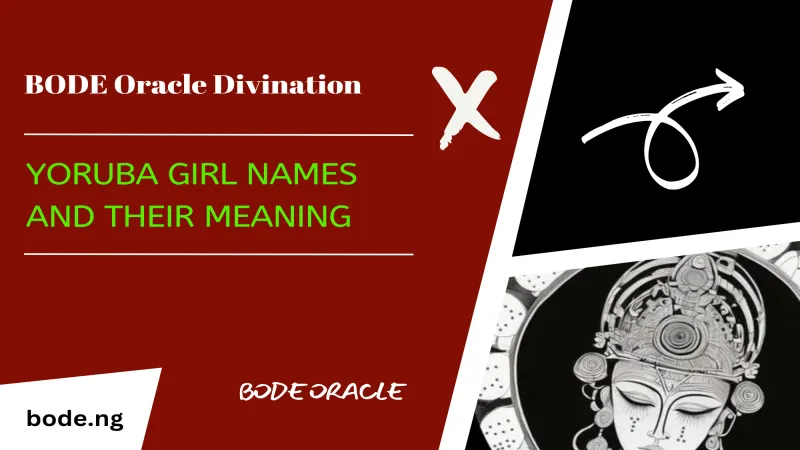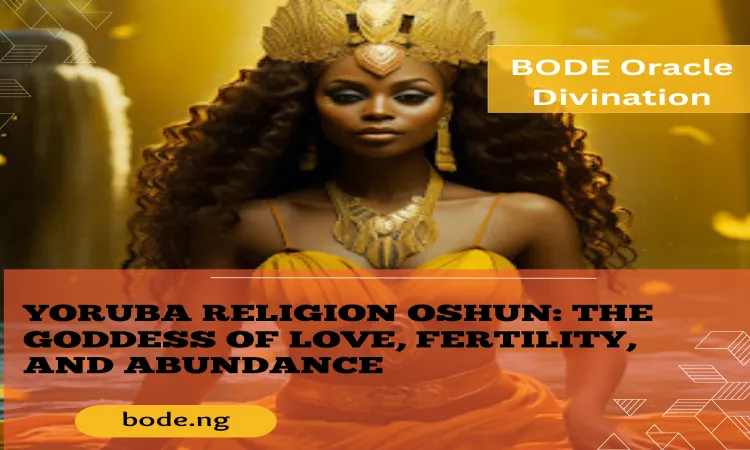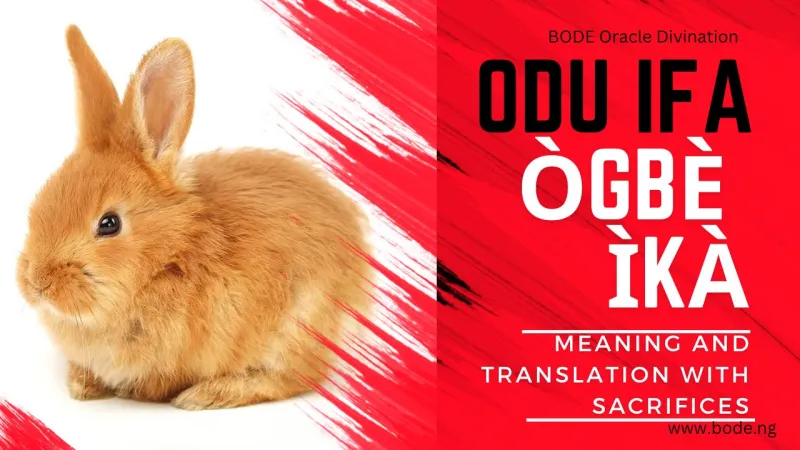Ogbe Iwori - Ogbe Wehin: Explore the deep wisdom of Ogbè Ìwòrì, also known as Ogbe Wehin, where Ifá unveils blessings of prosperity and spiritual guidance for those who receive this Odu.
Ogbè Ìwòrì also teaches the importance of not lending what you cannot part with, as the borrower may be unwilling to return it.
Ogbè Ìwòrì, Ogbe Wehin: Ifa Divination for The King of Oyo
Ifá declares that prosperity will follow the person who receives the Ogbè Ìwòrì, also known as Ogbè Wèhìn. Ifá advises that they should offer a sacrifice.
“Ogbè turns backward like a dog chasing a squirrel, The dog catches the squirrel, and the squirrel screams,” This was the Ifá divination for the king of Òyó On the day he woke up and realized no one was serving him anymore.
The king of Òyó consulted Ifá because he lacked servants. He was advised to offer a sacrifice. He made the sacrifice, and the offering was accepted. Ifá was cast for the king of Òyó, and not long after, his servants began to multiply.
Everything started improving for him. Servants came in abundance. He began to praise the Babaláwo (diviner), And the Babaláwo praised Ifá.
The Babaláwo said:
“Ogbè turns backward like a dog chasing a squirrel, The dog catches the squirrel, and the squirrel screams,” This was the Ifá divination for the king of Òyó On the day he woke up and realized no one was serving him anymore. Ifá said, "I, like the Iroko tree in the forest, will always have people to serve me.
Even in the deepest parts of the forest, the Iroko tree never lacks those who come to worship it."
Ifá promises blessings for the person who receives Ogbè Wèhìn, whatever they do, nobody will be able to check and balance them. Ifá advises that they should offer a sacrifice.
Divination Instruction
Whoever this Odu appear should consult an expert Babalawo or Iyanifa to prescribe necessary sacrifice for prosperity.
Ogbe Iwori, Ogbe Wehin: Ifa Divination For Orunmila Looking for Good Fortune
When their head is not of a good fortune, they will seek help from those with good fortune. This was the Ifá divination for Òrúnmìlà When he was seeking the spiritual crown of Èṣù Òdàrà.
Òrúnmìlà wanted to claim the spiritual crown. Òrúnmìlà approached his friend Èù Òdàrà and asked to borrow the crown, promising to return it once he had used it to claim his title.
Èṣù agreed and gave the crown to Òrúnmìlà, who then became a chief. Afterward, when it was time to return the crown, Òrúnmìlà refused to give it back. Èṣù went to Òrúnmìlà and asked for his crown.
Òrúnmìlà then sought the advice of the Babaláwo, asking how he could keep the crown without returning it to Èṣù. The Babaláwo cast Ifá and told him he needed to make a sacrifice.
Òrúnmìlà offered the sacrifice, and the Babaláwo created an image that resembled a head but was not truly a head. They placed it at the crossroads, and when Èṣù arrived, He grabbed the fake head, only to find out later it wasn't his crown.
He went back to Òrúnmìlà, saying that what he had was not his real crown. Òrúnmìlà replied that the head he gave him was the one Èṣù had lent him, and he had no other head to return.
Thus, Òrúnmìlà kept the spiritual crown of Èṣù.
When Òrúnmìlà spoke, he sang a song of Ifá:
“Èṣù Òdàrà stop troubling me, A head cannot be used twice,” Èṣù Òdàrà stop troubling me.
This can also be translated as King Executioner cannot take the same head two times after the head has been taken already.
Divination Instruction
The lesson from Ifá is that anyone who receives Ogbè Wèhìn should not borrow anyone anything they cannot forget about. This is because the person you borrow something may not wish to give it back.
Ogbe Iwori: Ogbe Wehin on the Importance of Sacrifice
Reflection on the Journey of Ebure
"I will always look back just in case a visitor is coming."
An oracle was consulted for Ebure, who was preparing to go to Alero farm that year. Ebure sought guidance on the journey he wished to undertake, inquiring whether it would be fruitful and whether he would become a landowner there.
The oracle affirmed that the journey would indeed be good and prosperous. He was advised to offer a sacrifice, which he dutifully performed. Upon reaching the farm, Ebure became a landowner, and everything he possessed began to flourish.
In gratitude, he praised the diviner, who in turn extolled the wisdom of Ifá.
Thus, the priests say:
"I will always look back just in case a visitor is coming. An oracle was consulted for Ebure, Who was preparing to go to Alero farm that year."
"If we pass through farm heaps: We will always pass through the farm heaps of Ebure. If we pass through farm heaps: We will always pass through the farm heaps of Ebure."
This Odu speaks to the vastness of Ebure's farm and highlights his success as a farmer, emphasizing the abundance of land he possesses.
Divination Instruction
Whoever this Odu appear should consult an expert Babalawo or Iyanifa to prescribe necessary sacrifice for prosperity at work and in their businesses.
Guidance and Consequence: Ogbe Wehin Warning
When their world is joyful,
When their world is thriving,
It is a sign of moral decay.
An oracle was consulted for Onígbìmó,
Who did not adhere to tradition
And introduced his wife to the Oro deity.
Onígbìmó, as described by Ifá, was a wretched individual who wandered aimlessly. Despite working tirelessly from morning till night, he never saw any profit.
When he struggled to understand his circumstances, he connected the dots and went directly to an Ifá priest.
The priest instructed him to make sacrifices, assuring him that if he did so, he would become wealthy and a powerful leader in society. However, Onígbìmó failed to perform these sacrifices.
At one point, circumstances unexpectedly changed for him.
In this village, the Oro rites are performed annually. Onígbìmó's wife constantly urged him to take her to the sacred grove of the Oro deity, expressing her desire to learn about this deity.
Esu went to see Orunmila to inquire whether Onígbìmó had performed the prescribed sacrifices. Orunmila confirmed that he had not fulfilled his obligations. Now, it was left to Esu to enact punishment; the spirit of Esu entered Onígbìmó's wife.
Again, when it was time for the yearly Oro rites, Onígbìmó's wife approached him, persistently questioning whether he was hiding anything from her. She nagged him about wanting to know the Oro deity.
In Yoruba land, it is taboo for women to enter the sacred grove of the Oro deity or even to see the deity itself.
Esu commanded the husband to heed his wife's wishes, and he agreed to take her to the sacred site of Oro. However, to do so, he instructed that a large basket be prepared to contain her, with a small hole for her to peek through.
This basket is what kings traditionally rested their feet upon in the sacred grove of the Oro deity. When the time came to perform the Oro rites, they arrived at the sacred grove and completed all rituals and sacrifices, consulting the oracle with kola nuts, which yielded no positive responses.
As they conducted these rites, Onígbìmó's wife viewed everything through the hole in the basket.
The sacrifice was rejected, prompting the priest to investigate the cause. He spoke to Ifá, and the Ifá priest sang:
"We called Ita; Ita did not speak.
We called Pakoko; Pakoko was silent."
The priest instructed others to open the king's basket. When it was opened, they discovered Onígbìmó's wife inside, and she was brought out.
"When this happens, the woman who entered the sacred grove of the Oro deity and the king who brought her will be killed."
Without hesitation, they executed both Onígbìmó and his wife within the sacred grove of the Oro deity. After their deaths, the sacrifice was accepted by the deity.
This Ifá teaches us to avoid disobedience and to respect sacred traditions.
YORUBA Translation
Ogbè Ìwòrì, Ogbe Wehin: Ifa Oba Lode Oyo
Ifá pè óun pe ire ápésin fún ẹni ti ó dá Ogbé Ìwòrì ti an pe ni Ogbé Wèhìn. Ifá pé bọ ni ki ó rú.
Ogbé ṣé nwèhìn bí ajá mi ó bá ikun
Ajá pa ikun tán, ikun dariwo,
A d’Ifá fún ọba lode Òyó
L’ójó tó ji tó l’óun ò r’éni pé sin óun mó
Ọba lode Óyó ló dá’fá nigbati kò ní olusin lọpọlọpọ. Wọn Yán án l’ẹbọ. O rú’bo, ẹbọ fin, ẹbọ dà. Wọn ṣe Ifá fún ọba lode Óyó kò pé, ó bere sí ní olusin; gbogbo ǹkan rè bèrè si níí dára.
Olùsin dé lópólópó. Ó bèrè sí ní yin Awo; Awo nyin Ifá, Òni béè ni Awo wi:
Ogbé ṣé nwèhìn bí ajá mi ó pá’kun
Ajá pa’kún tán, ikun dariwo,
A d’Ifá fún ọba lode Òyó
L’ójó tó ji tó l’óun ò r’éni pé sin óun mó
Ifá ni emi ó rẹni pé sìn mí tèmi
Ìrókó oko èmi kó ṣài r’éni pé sin mí.
Ogbe Iwori, Ogbe Wehin: Ifa Orunmila ati Ori Esu Odara
Ifá pè ire áṣegbé fún ẹni tí dá Ogbé Wéhin. Ifá pé ẹbọ ní kó rú
B’órí wn ó bá sunwọn,
Orí ol’órí ni wón tọr mú re’bi
A d’Ifá fún Òrúnmìlà
Baba yi óò tọrọ orí Èṣù Òdàrà jo’yè
Òrúnmìlà ló fẹ jo’yé. Òrúnmìlá réè, óré Èṣù Ọdàrà ni, orí Oyé ní orí Èṣù Ọdàrà. Ni Òrúnmìlà bá l’o bá Èṣù, ó tọrọ orí Èṣù Òdàrà wipe tí óun bá ti je oyè tan, òun óò dá ori ré padá fun.
Ni Èṣù bá gbé ori ré fún Òrúnmìlà. Òrúnmìlà jẹ oyè lóóótó. Lehin oyé, Òrúnmìlá kó dá orí padá fún Èṣù, ni Èṣù Ọdàrà bá Lo bá Òrúnmìlà wipe ki ó bá óun gbé ori òun.
Ni Òrúnmìlà bá Dide. Ó tọ áwọn Awo lọ wipe bawo ni óun ó ṣe jẹ orí Èṣù Òdàrà Gbé, ti yó fi di t’òun, Awọn Awo dá’fá, wón ni ẹbọ ni ko’rú. Awọn Awo yàn àn l’ẹbọ. Òrúnmìlà rú’bọ, ni áwọn Awo bá mọ igidi, ò dabi orí, ni wọn bá gbe ló si oríta ni dii Èṣù.
Èṣù débè, ó gbe ka orí ara rè kò dúró, ò tún padà lọ bá Òrúnmìlà wipe, orí t’òun kó ni yìí. Òrúnmìlà ni orí tí òun gbá l’ówó Èṣù Òdàrà l’òun tì gbé padá un. Òun kò tùn ni orí miran t’òun óò gbé padà fún Èṣù mó, Báyíí ni Òrúnmìlà jẹ orí Èṣù gbè.
Ẹnu tí Òrúnmìlà yá, orin Awo ló bó si lé’nu, ó ni:
Èṣù Òdàrà sin lẹhìn mi ò
Gbo’rí gborí kii gbo’ri ó léèmeji
Èṣù Òdàrà sin lẹhìn mi.
Ékó tí Ifá kó wa ni pé ẹniti ó dá Ogbè Wèhìn, ki ó má fi nkan tọrẹ áyá fi ńkan ti kò bá ni gbà padà mó, nítoripé ẹni tí ó fun ni ńkan kò ni fé dá padá fún mó.
Ogbe Iwori, Ogbe Wehin: Ifa Ebure
Sé ni nwèhin wò bálejò mbọ wá
A d’Ifá fún èbúré
Tó ńlọ oko àléró l’ódún.
Èburé ló lọ réé dá’fá wipe, írín àjó tí òun f lọ yìí, ńjé yó Dára, ibi tí òun ńlọ ńjẹ yó san, òun yó di onilé nibe, wọn ní bọ ní kó rú, wọn yán àn l’ẹbọ. Órú’bọ, igbàtí èbúré d’óko, Ó di onilè, gbogbo ńkan ré sì bèrè sí ni dára.
Ló bá nyin Babaláwo, ní babaláwo nyin Ifá, óní béé l’awọn awo wipe:
Sé ni nwèhin wò bálejò mb wá
A d’Ifá fún èbúré tò ńlọ oko àlèrò l’ódúnBí a gbo’ko gbààlà
Bí a gbo’ko gbá ààlà èbùré
Bi’a gbo’ko gbáálá
Bí a gbo’ko gbá ààlà èbùré
Ogbe Iwori, Ogbe Wehin: Ifa Onigbimo
B’áye wón bá ndun
B’áye wọn bá ńdára,
Ìwà ibaje ni wọn nhú
A d’Ifá fún Onígbìmó
Tí yó lá lá lá
Ti yó fi aya rè mọ orò
Onígbìmò tí Ifá s yìí, oloṣi èyàn ni, ó kán ma nri kiri ṣáá, bó bá ṣiṣé ṣié, kìì ri èré. Ìgbàtí òró ara rè kó ye, ó mú ééjì Kún ééta, ó lọ oko awo, wón ni ẹbọ ni kó rú, tó bá lè rú’bọ, yó là yó si j’oyè, Ṣùgbón Onigbìmò kò ru’bọ.
Ìgbàtí ó yá, ńkan yí mó Onígbìmó l’ọwọ. Ní ìlú yìí, ọdọọdún Ni wọn ma ńlọ si ígbò orò. Ìyáwó ré si ma ńyọ ọ l’ẹnu wipe kó Mù òun lọ si igbo orò, òun fé mọ orò. Èṣù sì ti lọ bà Òrúnmìlà Wipe ńjẹ Onígbimọ rú’bọ, Òrúnmìlà ní kò wa ru ẹbọ rè.
Àṣẹ wá di àṣẹ Èṣù, ó parada, ò kó si Íyàwó Onigbimò ninu. Ni Iyàwó Onigbimò bá tùn lọ bá ọkọ rè, nigbati ó di odun ti wọn ṣe ọdùn orò mi, ò sẹ fún ọkọ rè wipe, sé nkankan tún wá ti onigbimò tún le fi pamọ fún òun, àni òun fémọ orò sé.
Ni Ile Yoruba Obìnrìn kò si gbodo de igbbó oró. Áṣẹ Èṣu, ní ọkọ rè bà gbà si l’énu wipe òun yo mú lọ. Kiá, Onígbímọ ti ní ki wọn ó lọ wa apèrè tó gba èniyàn, ki wọn ṣe ojú si, ojú yìí ni iyawo rè yó ma gbà riran.
Apèrè yi ni ọba fi ma ti’sè ni’gbó orò. Ọjó igbo orò pè, wó De’igbó, wón ńṣe étútú, wón dá obì kò yàn, gbogbo bi wọn ti Ńṣe ni iyawo onígbìmọ ńwò wọn láti inú apèrè ti ọkọ rè fi ti ẹsẹ.
Ètùtù kò gbà, ni wón bá pe Awo wipe kó bèrè ohun ti ó fáá, Awo bá Ifá s’òrò, ni Awo bá fi orin Awo bọ, nu wipe:
A pè’ta, itá ò dún o
A pè pákòkò kò fo’hùn o
E ṣi apèrè ọba wò.
Wn si apèrè, wón bá iyawo Onígbìmò nibe. Ni wón bá mu Jáde. Ti ó bá ti ri bayii ati obinrin tò wọ igbo orò, áti ọba tó Bá mu wó ọ ni wọn yó pa. Kò sí ṣiṣé, kó sí áiṣe, ni wón bá pa Áwọn mejeeji si igbo orò, Èhin èyi ní étútú gbá.
Ifá yìí kò wa kì a má ṣe àìgbórán, kí a si má dáá ejá mó.
Explore All Ogbe Iwori Videos Here:
Ogbe Iwori: The Untold Story of Oyo Kings - Yoruba Video
Ogbe Iwori: The Untold Story of Oyo Kings - English Narrated Video
Ogbe Iwori Revealed The Shocking Fate of Olugbimo and His Wife - Yoruba Video
Ogbe Iwori Revealed The Shocking Fate of Olugbimo and His Wife - English Video
Ogbe Iwori - Orunmila and the Sacred Head of Esu Odara - Yoruba Video
Ogbe Iwori - Orunmila and the Sacred Head of Esu Odara - English Narrated Video



